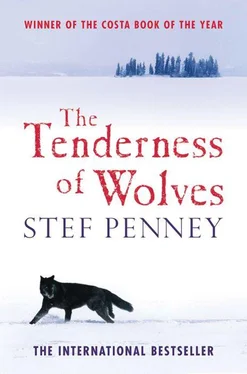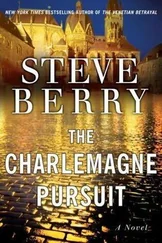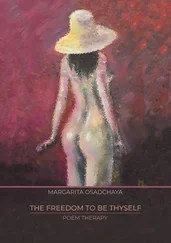‘So when’s he coming back? Aren’t you worried, with a murderer running around?’
‘He’s fishing. Probably not till tomorrow.’
I suddenly want her to leave, and she takes the hint and asks me for a loan of tea–a sign that she thinks there is nothing else to be had from me. I give her the tea more willingly than usual, and add some coffee beans in a fit of generosity which ensures she won’t be back soon, as backwoods etiquette dictates you bring an equal offering with each visit.
‘Well … Best be getting on.’
And yet she still doesn’t go, looking at me with an expression I don’t think I have seen on her face before. It disturbs me somehow.
Hot water has a beneficial effect on me. Bathing is not de rigueur in November, but I see it as a more civilised alternative to the shock baths they used to give us in the asylum. I only experienced the douche twice, in the early days, and although excruciating in anticipation and duration, it left you feeling remarkably calm and clear-headed, even exhilarated. It was a simple device whereby the patient (in this case, me) would be strapped to a wooden chair in a thin cotton shift while a large bucket of cold water was raised above your head. An attendant pulled a lever and the bucket tipped over, drenching you in icy water. That was before Paul–Dr Watson–took over as Superintendent and instigated a gentler regime for the mad, which meant (for the women at least) sewing, flower arranging and all sorts of nonsense. I only agreed to go into the hospital in the first place to get away from that sort of thing.
Thinking about my time in the asylum always cheers me–the advantage, I suppose, of a miserable youth. I must remember to share this pearl of wisdom with Francis when he comes home.
He introduces himself as Mr Mackinley, factor of Fort Edgar. He is a slight man, his thick hair cut short so that it looks, appropriately, like fur. Something about me surprises him–I think my accent, which is more cultured than his and probably seems out of place here. His manner becomes slightly obsequious at this, although I can see him fighting it. All in all, not a happy man. Not that I’ve got anything to shout about.
‘Is your husband in?’ he asks stiffly. As a woman I’m obviously not supposed to know anything.
‘He is out on business. And our son is on a fishing trip. I am Mrs Ross. I found the body.’
‘Ah. I see.’
He’s a fascinating case–one of those rare Scotsmen, whose expression reveals his mind. Assimilating all this information, his face changes yet again, and on top of the surprise and deference and courtesy and mild contempt is a keen interest. I could watch him all day, but he has his job to do. And I have mine.
He gets out a notebook and I tell him that Angus will be back later, but was in the Sault until yesterday afternoon, and Francis left yesterday morning. This is a lie, but I have thought about what to say and no one knows any different. He seems interested in Francis. I say he has gone up to Swallow Lake, but may move on if the fish aren’t biting.
I say they were friendly. He takes notes.
I thought hard about what to say about Francis and Jammet and their friendship. It has occurred to me that Jammet was perhaps his only friend, even though Jammet was so much older, and French. Jammet persuaded Francis to go hunting, something Angus had never managed. There was also that time earlier this summer when I was walking to the Maclaren place and passed his cabin. I heard a violin playing–a bright, infectious sound totally unlike Scottish fiddle music–some French folk tune, I suppose. It was so attractive that I veered towards the cabin in my urge to listen. Then the door burst open and a figure spilled out, limbs flailing, then dashed back inside, in some sort of game. The music, which had stopped, started up again, and I walked on. It had taken me a couple of moments to realise that the figure was Francis. I hardly recognised him, perhaps because he was laughing.
He’s not stupid, this one, despite his revealing face. But perhaps it is all an act–it throws you off the scent. Now, strangely, his expression is quite different–he looks at me almost kindly, as if he has established that I am a poor creature who can be no threat to him. I am not sure what I have done to give him this idea, but it annoys me.
Through the window I watch him walking up the road to the Prettys’ farm and think of Ann. I wonder whether the expression I saw on her face was pity.
Donald quickly learns some facts about Caulfield. For one thing, when he knocks on the door of a house the occupants panic–no one knocks in the normal run of things. When they have established that no members of their immediate family are dead, injured or under arrest, they drag him in to ply him with tea and pump him for information. His notes are a chaos of cross-references: the first family have seen nothing but send for a cousin, who turns out to be the husband of another woman, whom he awaits for an hour before realising he has already met him. People surge in and out of their houses swapping stories, theories and excited, doom-laden prophesies about the state of the country. Trying to make sense of it is like trying to gather the river in his arms.
It is dark by the time he has completed his allotted round of questioning. He waits in the parlour at Knox’s house and tries to draw conclusions from what he has heard. His notes reveal that no one he spoke to saw anything unusual–he discounts the atypical squirrel behaviour seen that morning by George Addamont. Donald hopes that he hasn’t let the others down by missing something obvious. He is tired and has been fed a great deal of tea and, latterly, whisky; has made promises to revisit several households; but he has not, he is fairly certain, met a murderer.
He is wondering how to ask for directions to the bathroom when the door opens and the plainer Knox daughter looks in. Donald immediately stands up and drops some sheets of paper, which Maria hands back to him with a sly smile. Donald blushes, but is thankful that it is Maria and not Susannah who witnesses his clumsiness.
‘Father has roped you in to play detective then?’
Donald immediately feels that she has sensed his insecurity about the afternoon and is making fun of him.
‘Surely someone must attempt to find the villain?’
‘Well of course, I didn’t mean …’ She trails off, looking annoyed. She was only making small talk, he realises, too late. He should have agreed light-heartedly, or made some sort of quip.
‘Do you know when your father is to return?’
‘No.’ She looks at him with that calculating look. ‘I have no way of knowing that.’ Then she smiles, not kindly. ‘Shall I ask Susannah? Perhaps she knows. I’ll go and find her.’
Maria leaves Donald to wonder what he has done to incur such sharpness. He imagines the sisters giggling over his lack of social graces, and feels a surge of affection for his ledgers at the fort, full of neat figures that, with a little manipulation, he can always make come out right. He prides himself on his ability to account for vague items like the cleaning done by the native women, or the food brought in by the hunters, so that they balance the ‘hospitality’ the Company extends to the voyageurs’ families. If only people were as easy to manage.
A polite cough alerts him to Susannah’s presence just before she opens the door.
‘Mr Moody? Oh, you have been quite abandoned; shall I send for some tea?’
She smiles gracefully, so different from her sister, but still has the effect of making him jump to his feet, though this time he holds onto his notes.
‘No, thank you, I have been … Well, yes, perhaps, that would be very … Thank you.’ He tries not to think about the gallons of tea he has drunk.
Читать дальше












